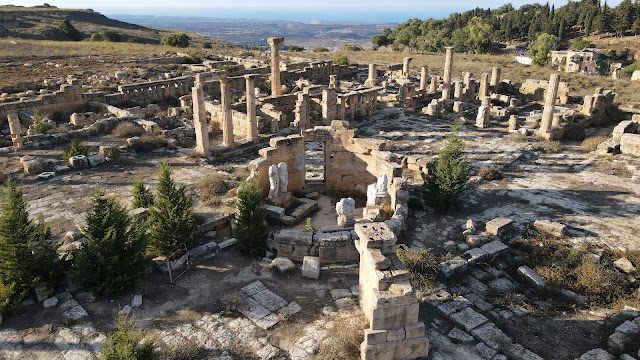 Going to Libya presents a potential chance to investigate a place that is known for old history, different scenes, and a rich social legacy. This North African nation, known for its archeological fortunes and immense desert scenes, offers an excursion interfacing you with this baffling area's over a significant time span.
Going to Libya presents a potential chance to investigate a place that is known for old history, different scenes, and a rich social legacy. This North African nation, known for its archeological fortunes and immense desert scenes, offers an excursion interfacing you with this baffling area's over a significant time span.
As you show up in Libya, you're invited by a blend of old remains and current urban communities. The capital, Tripoli, with its clamoring markets, noteworthy medina, and Ottoman-period design, gives a brief look into day to day existence in the midst of a scenery of history.
Leptis Magna, perhaps of the most all around protected Roman city
on the planet, features great curves, theaters, and unpredictable mosaics that transport you back to the times of the Roman Domain.Sabratha, another old Roman city, flaunts all around safeguarded ruins along the Mediterranean coast, offering bits of knowledge into the district's rich history.
Libya's Sahara Desert welcomes you to wander into immense and spectacular scenes. The Acacus Mountains are decorated with ancient stone craftsmanship that uncovers the narrative of early human civilizations.
Ghadames, an UNESCO-recorded old city, is known for its special design, thin rear entryways, and mud-block houses, offering a brief look into conventional Saharan life.
The Libyan cooking highlights flavors impacted by the Mediterranean and North African societies. Conventional dishes like couscous, sheep stew, and flatbreads give a sample of neighborhood flavors.
Libya's social legacy is communicated through its celebrations, music, and specialties. Drawing in with nearby networks gives bits of knowledge into their practices, neighborliness, and strength.
It means a lot to take note of that due to progressing political and security challenges, travel to Libya might have impediments and require exhaustive preparation and wellbeing precautionary measures. Prior to considering an outing, counseling official tourism warnings and look for guidance from dependable sources is suggested.
Heading out to Libya offers a chance to investigate a land where old developments address current difficulties. Whether investigating notable destinations, diving into archeological ponders, or drawing in with nearby networks, it guarantees a special excursion that uncovers layers of its social and verifiable embroidery.
While making a trip to Libya might have explicit impediments because of its ongoing circumstance, the following are 10 activities in Palau:
Leptis Magna: Investigate the strikingly very much safeguarded antiquated Roman city with its noteworthy design, including curves, theaters, and mind boggling mosaics.
Sabratha: Visit the old Roman city of Sabratha, popular for its theater, sanctuaries, and remains along the Mediterranean coast.
Ghadames: Find the UNESCO-recorded old city of Ghadames, portrayed by its novel engineering and customary lifestyle.
Tripoli: Investigate the capital city, Tripoli, including the noteworthy medina, Red Palace, and lively business sectors.
Cyrene: Experience the archeological site of Cyrene, an old Greek and later Roman city known for its sanctuaries, marketplace, and theater.
Apollonia: Visit Apollonia, one more old Greek city with very much safeguarded ruins, including a theater and Roman manors.
Tadrart Acacus: Adventure into the Tadrart Acacus Mountains to see ancient stone workmanship that offers bits of knowledge into early mankind's set of experiences.
Libyan Cooking: Appreciate customary Libyan food, which frequently includes couscous, sheep dishes, and neighborhood flatbreads.
Neighborhood Markets: Drench yourself in nearby culture by visiting markets where you can cooperate with local people and find their regular routines.
Social Connection: Draw in with nearby networks to find out about their practices, music, and specialties, acquiring experiences into Libyan culture.



